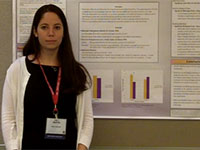Young people are vulnerable to loneliness too
At its most basic level, loneliness is unwanted solitude. However, it can also be a sense of isolation completely unrelated to how many people are around. It’s a feeling that has more to do with the quality of our relationships than our real or virtual friend count. One can feel cripplingly lonely in a crowd and, in many ways, this its worst manifestation − like dying of thirst on a desert island surrounded by cool, blue, undrinkable, seawater.
Psychologists distinguish between social loneliness and emotional loneliness. The former is related to fitting in and feeling like we belong, while emotional loneliness is about separation from loved ones. The 13th-century Sufi poet Rumi beautifully captures the idea of emotional loneliness in his poem, Song of the Reed, which places the reader inside the mind of a flute:
—
Loneliness is, for some people, a trigger for depression and anxiety. As an indication of how seriously some nations are now taking the problem, the UK government appointed the world’s first minister for loneliness earlier this year. This appointment came on the back of a research report – The Jo Cox Commission on Loneliness – that suggested social isolation is an increasing public health concern in the UK, negatively impacting around 14 per cent of the population, or approximately nine million people. Similarly, in an article for the Harvard business Review, US Surgeon General Vivek Murthy referred to loneliness as a “growing health epidemic”.
The outcomes for health conditions such as heart disease, stroke and major depression are all far less favourable if the sufferer is also socially isolated or lonely. One review study published in 2015, in the journal Perspectives on Psychological Science, suggests that social isolation is as damaging to health as smoking 15 cigarettes per day.
Read the whole story (subscription may be required): The National




APS regularly opens certain online articles for discussion on our website. Effective February 2021, you must be a logged-in APS member to post comments. By posting a comment, you agree to our Community Guidelines and the display of your profile information, including your name and affiliation. Any opinions, findings, conclusions, or recommendations present in article comments are those of the writers and do not necessarily reflect the views of APS or the article’s author. For more information, please see our Community Guidelines.
Please login with your APS account to comment.